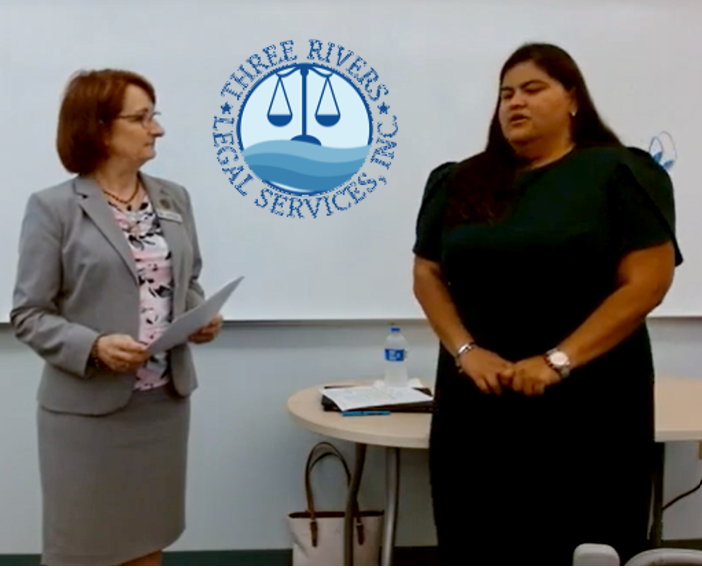Three Rivers Legal Services recently had a very informative workshop on Home Ownership. This post is a summary of the workshop, a link to the complete video can be found below.
Property Taxes
This can be a confusing topic for many homeowners. Property taxes are due annually, and tax collectors issue tax bills every year in November. The earlier you pay your taxes, the more significant the discount you’ll receive. But who is responsible for paying these taxes? Ultimately, the property owner or any heir of the property owner is responsible for paying the taxes. If your property has a mortgage, your mortgage company may pay the taxes if you have an escrow account with them. However, even if your mortgage company pays the taxes, you are still responsible for making sure they are paid. If you fail to pay your property taxes, a tax lien could be placed on your property.
It’s easy to check whether your mortgage company has paid your property taxes. Simply visit the tax collector’s web page and look up your property’s payment history. You’ll be able to see who has been paying your taxes and when they were paid.
If you need to pay your property taxes yourself, there are several options available. You can pay online through the tax collector’s web page or in person at their office. If you prefer to pay by mail, you can send a check directly to the tax collector.
But what happens if you don’t pay your property taxes? Once the April 1st deadline passes, your taxes become delinquent. If they remain unpaid, the tax collector can put your property up for sale and issue a tax certificate for it.
Homestead Exemption another important concept for homeowners to understand. This tax benefit provides a reduction in the taxable value of a property, resulting in a lower tax bill. To qualify for this exemption, homeowners must meet certain criteria, including ownership of the property.
Reverse Mortgages.
A reverse mortgage is a loan that allows homeowners to convert a portion of their home equity into cash. These loans can be complicated, so it’s important to be cautious before taking one out. Reverse mortgages are only available to homeowners who are 62 years or older and have considerable home equity. There are different types of reverse mortgages available, including Home Equity Conversion Mortgages (HECMs), which are backed by the federal government, and proprietary reverse mortgages offered by private lenders.
With a reverse mortgage, homeowners can choose to receive funds as a lump sum, a fixed monthly payment, or a line of credit. It’s important to carefully consider your options and make sure that a reverse mortgage is right for you before taking one out.
Keeping or Selling Your Home: Pros and Cons
Deciding whether to keep or sell your home can be a difficult decision. Keeping your home can provide stability and a sense of community. If you’ve lived in your home for a long time, you likely have deep ties to your neighborhood and community. Additionally, keeping your home allows you to build equity over time, which can be used for things like home repairs or upgrades.
However, keeping a home can also be costly. Homeowners are responsible for paying property taxes, homeowner’s insurance, and other property-related expenses. As homes age, they may also require more maintenance and repairs, which can be expensive.
Now let’s talk about the pros and cons of selling your home. One major advantage of selling is that it can provide a large sum of money that can be used for things like purchasing a new home or paying off debts. Selling a home can also provide a fresh start and the opportunity to move to a new location.
On the other hand, there are some disadvantages to selling a home. The housing market can be unpredictable, and you may not get the price you were hoping for. Selling a home can also be stressful and time-consuming, requiring preparation, staging, and open houses. Additionally, if you sell your primary residence, you may lose out on certain tax benefits associated with homeownership.
In conclusion, the decision to keep or sell your home should be carefully considered. Take into account both the financial and emotional factors involved before making a decision. If you would like to watch the complete outreach video click below:
